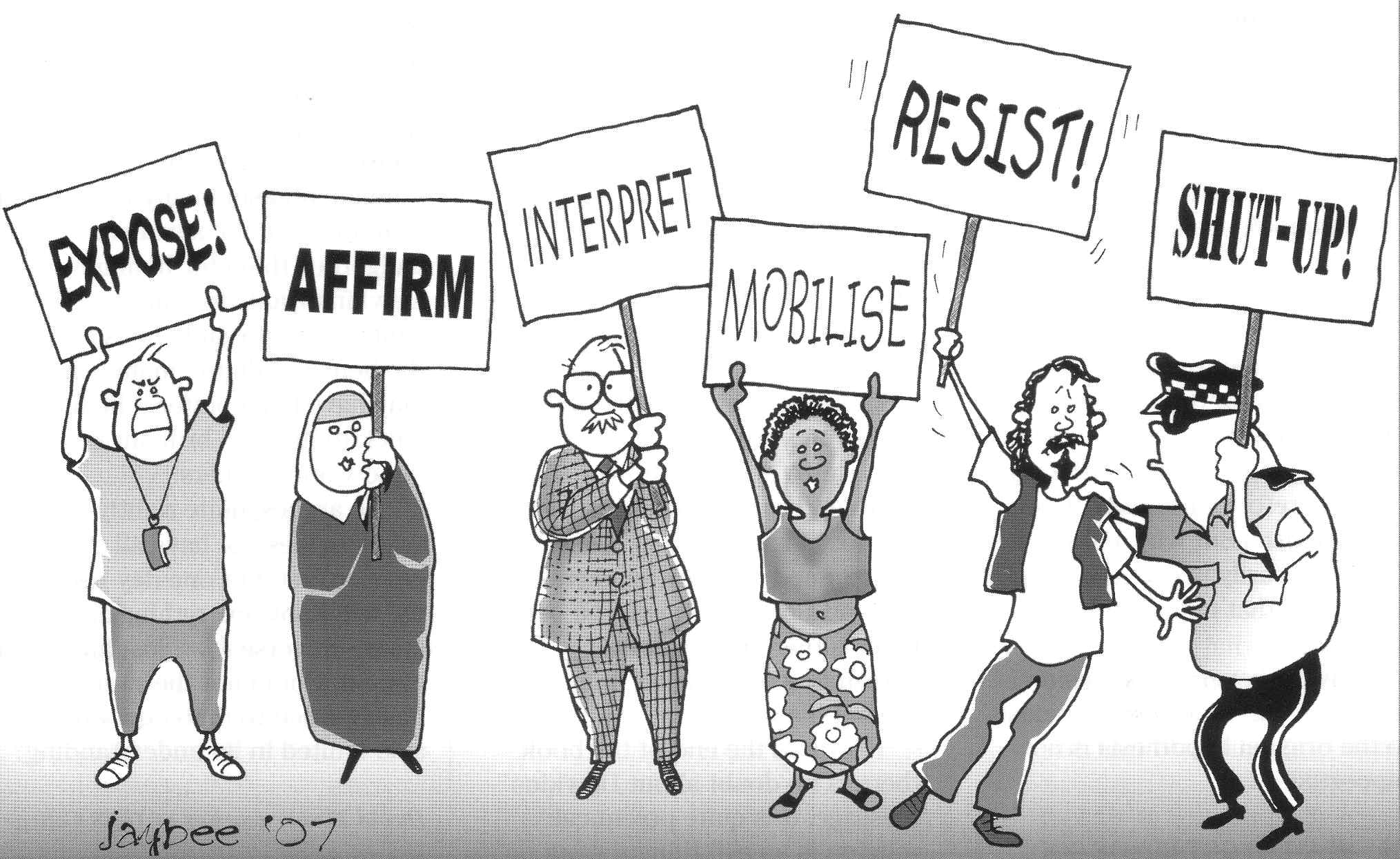By: Shabeer Rather, Peerzada Umer
Promoting the world view that doesn’t allow the citizens, including students, to protest against the government policies, question what the teachers teach, to do critical analysis of what our religious leaders or political leaders tell or want us to follow is seriously inclining us towards slavery.
Throughout the history, dissent has been very important in bringing about vibrant changes in any given society. The information explosion of today’s world has made a common man to believe many things that are fictitious, one sided or planted for exploitation which spoils the intellectual atmosphere. The inclusive, yet democratic dialogue, between the learner and the learned in the distant past was a legacy of spiritually and intellectually awakened individuals which touched finer dimensions of life and brought to us notions of a better society.
One can say that curtailing the dissent is the worst human rights violation.
Those who speak up for the betterment of society accept the criticism and respect the opinion of others are indeed the citizens who lay the foundation of the society we intend to build. But the culture of asking questions even about small events is evanescing.
As students or learners we have no time to critically analyze the things or events so that questions may arise in our minds. We are too much muddled into several things that no specific thing cathes our full attention and as a result we are lukewarm in all respects.
Growing in a society where I am told not to utter a word when a religious preacher is preaching and the notion of him being all-knowing and pious becomes a psychological as well as cultural block for me, I can’t muster courage even for seeking meager explanations. It is a given fact that he (preacher) is right and I (the pupil) have no right to come up with questions.
Hence we are made slaves within our limited understanding of concepts and questions, if any, remain tucked inside our conscience forever.
Somehow we have confused the two terms- question and disagreement- by asking questions I am not necessarily disagreeing to what a teacher is teaching but it is actually a humble way of seeking more clarifications with regards to the topic in discussion. Even disagreement isn’t a bad word the eay it has been masked in our general understanding of the term. I can’t see things from your perspective and you can’t do the same from my perspective. Observing a single thing from different perspectives yields different meanings for viewers and one must not try and impose his/her view point on the other. Rather the beauty is to listen to each other and try understanding the reality of a given thing by combining our perspectives.
Similarly, in our political domain, leaders attain an unflinching, dominant and out-of-question status and the policies they draft, the moves they take and the guidelines they draw are necessarily to be taken as final. Questions with regard to such situations are unwelcome and often lead to serious repercussions for many. As quoted by J william Fulbright “In a democracy, dissent is an act of faith,” dissent is an indicator of healthy democracy and one of the parameters of democracy index that UK based company Economist intelligent unit(EIU) considers when measuring state of democracy in different countries.
Dissent acts as an instrument of expression and if not respected it often takes violent forms.
There are two dimensions to which questions are usually asked- one is the external world including various system, institutions, faiths and political setups while the second is inwards-asking questions to one’s own self, which wise men believed was more important as it lead to self discovery, self improvement and enhancing ones productivity.
As Tony Robbins says “If you want to change your life, change the questions which you ask yourself each day. ” Great men ask great questions to none but themselves. When people stop asking questions to the establishments of their wrong doings the culture becomes authoritarian but when we stop asking ourselves about our behaviors, we lose our ability to comprehend and become lazy and our productivity goes down. As our results are the outcome of what we chose in the past, choosing involves asking questions, this makes it even more important.
The declining trend of asking questions to self can be attributed to
In an event which happened during the khilafat of second khalifah, Hazrat umer (may Allah be pleased with him) when he wore a gown which seems much longer and much comfortable compared to the gowns wore by the people, he was questioned as to how he could afford such a piece of cloth. The khalifah was delighted to hear the question appreciating the critical eye that had pointed it out and dared to ask this question. He (R.A) was pleased to answer the question and clarify when he said that he had prepared the gown using his and his son’s cloths.
If it is so important to ask questions, why don’t we do it? And why don’t we let others to ask questions? Why this rejection of questions? Have we ever pondered over this serious issue?




